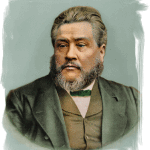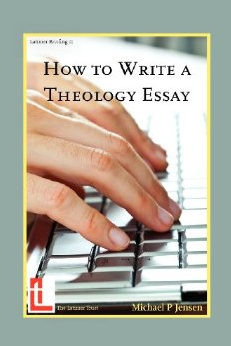 From lucidbooks – original source cry, and become awestruck with God with the stroke of his pen and eloquent prose. Here are seven writing tips taken from his life for aspiring writers.
From lucidbooks – original source cry, and become awestruck with God with the stroke of his pen and eloquent prose. Here are seven writing tips taken from his life for aspiring writers.
1. Write to Help others
“We are very mistaken, if our work does not prove to be of the utmost value to purchasers of books…no object in view but the benefit of our brethren…it will be remuneration enough to have aided the ministers of God in the study of his word” (Sword & Trowel, March 1876).
2. Write Short
“Long visits, long stories, long essays, long exhortations, and long prayers, seldom profit those who have to do with them. Life is short. Time is short.…Moments are precious. Learn to condense, abridge, and intensify…In making a statement, lop off branches; stick to the main facts in your case. If you pray, ask for what you believe you will receive, and get through; if you speak, tell your message and hold your peace; if you write, boil down two sentences into one, and three words into two. Always when practicable avoid lengthiness — learn to be short” (Sword & Trowel, September 1871).
3. Write for God
“Courteous reader, throughout another year we have endeavored, month by month, to provide for your entertainment and edification. For both, because the first is to the most of men needful to produce the second, and also because God hath joined them together, and no man should put them asunder” (Sword & Trowel, Preface, 1875).
4. Write Clearly
“So I gathered that my sermons were clear enough to be understood by anybody who was not so conceited as to darken his own mind with pride. Now, if boys read The Sword and the Trowel it cannot be said to shoot over people’s heads, nor can it be said to be very dull and dreary” (Sword & Trowell, November 1874).
5. Write to Compel
“It was an ill day when religion became so decorous as to call dullness her companion, and mirth became so frivolous as to demand the divorce of instruction from amusement. It is not needful that magazines for Christian reading should be made up of pious platitudes, heavy discourses, and dreary biographies of nobodies: the Sabbath literature of our families might be as vivacious and attractive as the best of amusing serials, and yet as deeply earnest and profitable as the soundest of divines would desire” (Sword & Trowel, Preface, 1875).
“If the writer had possessed genius and literary ability, this might have been a highly interesting work; but as the writers’ sole qualification is his honesty of purpose, the work is most reliable and dull” (Sword & Trowel, November 1882).
6. Write, Write, & Write
“Many of our hours of pain and weakness have been lightened by preparing the first volume of our book on the Psalms for the press. If we could not preach we could write, and we pray that this form of service may be accepted of the Lord” (Sword & Trowel, January 1870).
7. Read to Write
“Read good authors, that you may know what English is, you will find it to be a language very rarely written nowadays, and yet the grandest of all human tongues” (Sword & Trowel, August 1871).

 Justin Taylor put the following short article together on the subject of writing. What he wrote resonates with me very much. I believe there are great insights here.
Justin Taylor put the following short article together on the subject of writing. What he wrote resonates with me very much. I believe there are great insights here. Michael P. Jensen’s book “How to Write a Theology Essay” could prove to be a valuable resource for anyone wishing to help people grasp true things about God. Each of the twenty chapters ends with a bullet-point summary (though there is more to the book than the summaries):
Michael P. Jensen’s book “How to Write a Theology Essay” could prove to be a valuable resource for anyone wishing to help people grasp true things about God. Each of the twenty chapters ends with a bullet-point summary (though there is more to the book than the summaries):